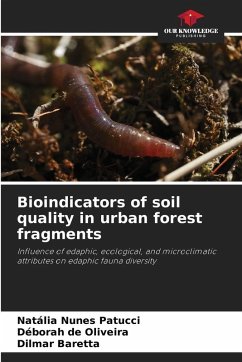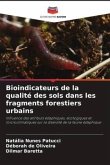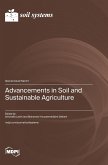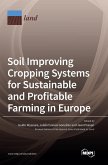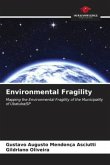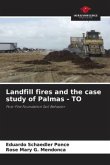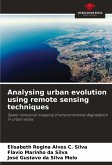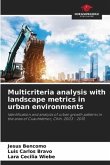This work consists of evaluating the soil quality of urban forest fragments located in the city of São Paulo, specifically in Cientec Park, Cantareira State Park, and Jaraguá State Park, through the use of biological indicators. These environments have undergone anthropic interventions and are currently in a stage of regeneration. Understanding environmental changes at the sites, such as contrasting environments of the sample plots (presence or absence of drainage channels), accumulated precipitation on collection days, soil temperature (°C), chemical attributes (pH, C.O, P, K, Ca, Mg, Al, H+Al, SB, CTC, V%, and m%), and diversity indices (richness, Simpson index, and evenness), added to the functional ecological diversity of organisms, their stratification in the soil, feeding habits, biopedoturbation dynamics, diversity in terms of species, genus, and families, biomass (g.m²), and density (Ind.m²), justify the use of bioindicators as an important tool for understanding the ecosystem processes that occur in these urban remnants undergoing restructuring, highlighting the importance of this case study.
Bitte wählen Sie Ihr Anliegen aus.
Rechnungen
Retourenschein anfordern
Bestellstatus
Storno

